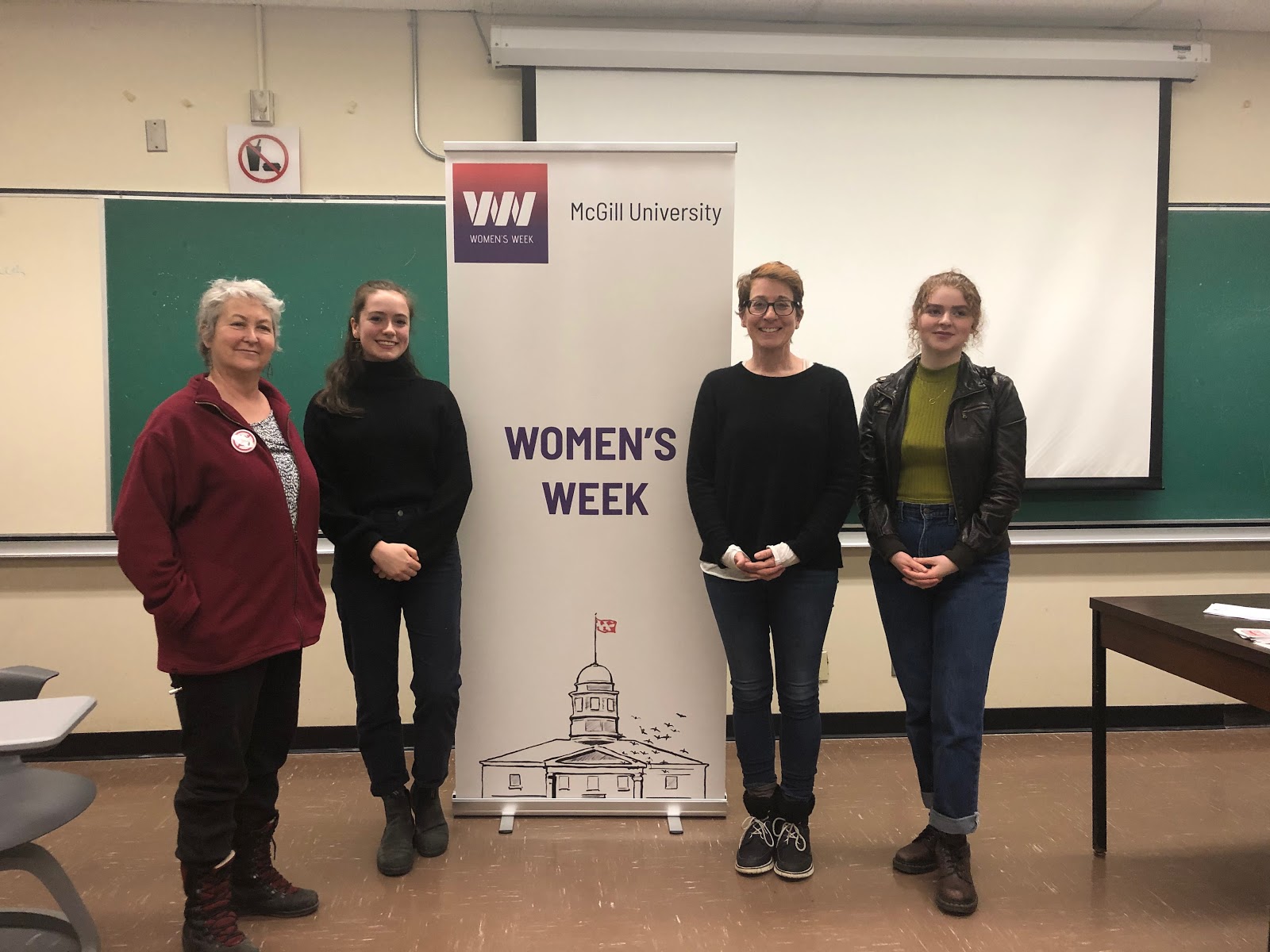McGill’s first annual Women’s Week took place March 9-13 following International Women’s Day on March 8. Over 30 clubs and services on campus planned events featuring discussions and film screenings, as well as an Athena-themed party, to celebrate and educate on topics relating to gender equity.
A panel dedicated to women’s health on March 10 featured a series of speakers who explored the lived experiences of women and femme-identitfied people in a medical and health context. The event was organized by McGill Students for Think Pink and Medical Herstory.
The first speaker, Patricia Kearns, is a member of Breast Cancer Action Quebec (ACSQC), a women-directed non-profit advocacy group committed to the prevention and reduction of breast cancer. One of ACSQC’s primary objectives includes the amendment of the Canadian Environmental Protection Act (CEPA) to reduce carcinogenic substances allowed for use in cosmetics and other personal care items. Some studies have suggested that phthalates, a common ingredient in consumer products, may be present in sufficient quantities to disrupt the endocrine system and cause cancer, though research has shown mixed results.
“We are aware that [Canada] has one of the weakest legislations in the world around toxic ingredients,” Kearns said. “We have been fighting for a long time to get [CEPA] reformed.”
When considering how CEPA can be improved, Kearns suggested looking to the European Union as a model for successful regulations, citing France as an example.
“Europe is so far advanced compared to Canada,” Kearns said. “They have looked at these classes of chemicals for a long time and they have banned them. [Here,] there’s just not the political will [to update regulations]. [The European Union also] has a program called REACH [that does] a lot of great work on chemical management.”
While Kearns emphasized cancer prevention, she also stressed the importance of educating not only each other but specifically government officials on cosmetics’ possibly carcinogenic substances in an effort to enact regulation change on a federal level. Although she acknowledges that there has been a shift in the cultural mindset toward ingredient transparency, Kearns also argued that consumers should not have to be dependent on hand-made products and personal incentive in order to stay healthy.
“[Making do-it-yourself products is like] an enactment of the precautionary principle on an individual level,” Kearns said. “But we also need to advocate for [stricter regulations] on a societal level so that the push comes to change our legislation. [We shouldn’t] have to become expert consumers and chemical detectives.”
The second speaker was Caitlin Wei, who spoke about her breast cancer story and the financial barriers that many patients face in the US regarding proper healthcare. She also brought up the nuances of reconstruction surgery after traumatic chemotherapy treatments.
Following Wei’s remarks, two students read short stories about their experiences with the Canadian healthcare system. The first speaker expressed the discomfort they felt disclosing their sexual history and dealing with heteronormative expectations in a pelvic exam, while the second described her negative experiences regarding gender and language bias in a Montreal hospital.
Finally, after the panel, audience member Melissa Kuch (U3 Arts) shared her story of being diagnosed with a rare type of cancer, usually only present in males, which she felt generated biases from doctors relating to her age and gender.
“There was this expectation that you’re young and you’re going to be fine, so I didn’t really get a lot of answers [when I had questions],” Kuch said. “[In addition], the discourse that [doctors] used and the language they used was always in relation to the male counterpart.”
Following the Quebec government’s directives announced on March 12 in response to coronavirus concerns, gatherings of more than 250 people were forbidden, so events scheduled for Women’s Week on Thursday 12 and Friday 13 were cancelled.









